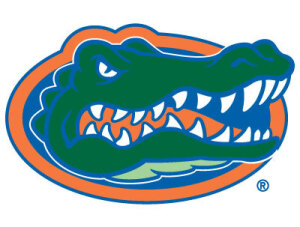by
Joan Trombetti, Writer | September 18, 2007

U of Florida Veterinary School
is as good as its sports teams
The University of Florida is home to the state's only College of Veterinary Medicine, founded in 1976. The College currently has enrolled 320 professional students and over 60 graduate students. There are 95 faculty members who during the past year have attracted more than $6,000,000 in external research awards.
The College maintains the largest funded biotechnology program among veterinary colleges worldwide, with an emphasis on tropical diseases of livestock. Other unique programs offered at the College include Wildlife and Zoo Animal Medicine, Equine Neonatal and Perinatal Studies, Veterinary Sports Medicine, and Interinstitutional Food Animal Health Training. Some of the research efforts concentrate on animal diseases that affect our food supply, diseases that affect horses, aquatic mammals and wildlife. Other programs study diseases common to animals and man, comparative medicine, and where appropriate, diseases unique to humans. The Veterinary Medical Teaching Hospital provides the most sophisticated diagnostic and therapeutic modalities in the state. The College of Veterinary Medicine has a small animal hospital, equine Hospital, and food animal hospital offer 15 different clinical specialty services that are available to
referring veterinarians in private practice and the public.



Ad Statistics
Times Displayed: 51285
Times Visited: 1490 Ampronix, a Top Master Distributor for Sony Medical, provides Sales, Service & Exchanges for Sony Surgical Displays, Printers, & More. Rely on Us for Expert Support Tailored to Your Needs. Email info@ampronix.com or Call 949-273-8000 for Premier Pricing.
Programs of Study
The College of Veterinary Medicine offers advanced graduate study leading to the Master of Science and Doctor of Philosophy degrees. The professional DVM program is not a graduate degree program, and applications are handled separately from the graduate program. Three departmental programs including Physiological Sciences, Infectious Diseases and Experimental Pathology, and Veterinary Medical Sciences administer major areas of concentration in graduate studies. Within these departmental programs, training includes appropriate course work and research in areas such as Comparative Anatomy and Physiology, Pharmacology, Biochemistry/Molecular Biology, Animal Nutrition, Comparative Toxicology, Immunology, Pathology, Parasitology, Epidemiology, and Infectious Diseases. This College also offers certification training in Forensic Toxicology both by distance education and as an add-on to MS and PhD degrees earned in this and other University of Florida colleges.
The graduate program provides training in basic and applied veterinary medical research for qualified students with a baccalaureate degree or a D.V.M. or equivalent degree. Qualified individuals may pursue graduate training concurrently with the professional DVM degree or residency training in a clinical specialty. Applicants are expected to have a strong background in the biological sciences. Prerequisites for admission in addition to those of the Graduate School include a broad educational base of mathematics, physics, organic and analytical chemistry, genetics, physiology and statistical methods.
Completion of the M.S. degree program usually takes two years, and completion of the Ph.D. degree program usually takes four years. Certification in Forensic Toxicology involves completion of five specified courses totaling 15 graduate credits and takes least 12 months to complete. Interdisciplinary collaborative programs among the departments in the College and with other UF departments in the Health Science Center and the Institute of Food and Agricultural Sciences provide the students with an excellent combination of educational programs. Graduate students plan their program with the advice and assistance of a Supervisory Committee made up of three to five graduate faculty.

